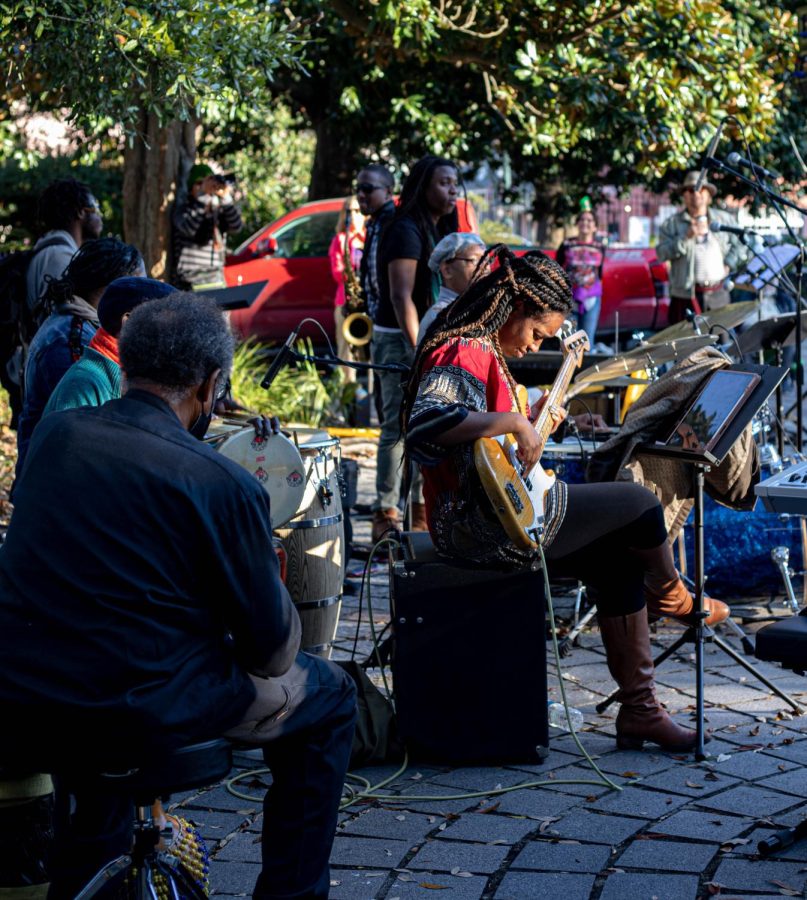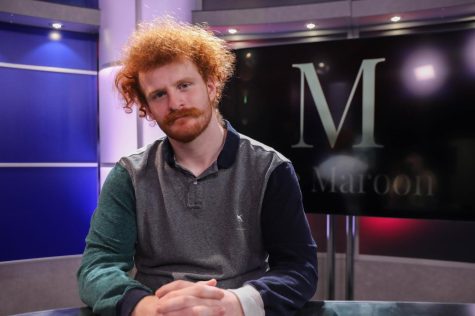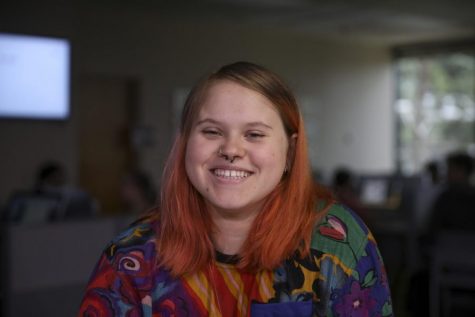Amina Scott balances teaching and gigs
Amina Scott, Loyola Contemporary Ensemble and Bass Instructor, performs electric bass at Congo Square during a Jason Marsalis show on Feb. 27, 2022. On top of teaching, Scott finds time to regularly perform with other local musicians and write original songs.
March 17, 2022
Loyola contemporary ensemble and bass instructor Amina Scott is teaching her students the lessons she learned while establishing herself as a fixture in the New Orleans jazz scene.
Since graduating from Loyola in 2013, Scott has traveled the country playing upright and electric bass alongside world-renowned jazz performers like Dee Dee Bridgewater, Jason Marselis, and Christian Scott aTunde Adujah. Scott began working as an instructor in Loyola’s music industry department in 2019.
Scott said the most important thing she encourages her students to do is embrace the things that make them stand out as musicians and as human beings.
“If you’re not comfortable with who you are, then it comes out when you play,” Scott said. “That’s a lesson I learned over years: being comfortable with who I am but being humble enough to know that as a person I could grow and change.”
Scott said that that was a lesson she had to learn when she was hired to perform alongside Grammy-winning trumpeter Nicholas Payton, who she’d been a long-time fan of. Scott said she prepared for the gig by religiously listening to Payton’s records in order to replicate the sounds of his studio bass players. While on stage, Scott said she realized she’d need to embrace her own unique sound if she ever wanted to get a call back.
“In my head, I’m hearing this other bass player who’s not me. I’m sitting here and trying to be that person but I can’t, because the moment’s different, the vibe is different,” she said. “It took me way too long to realize that like, oh, he’s calling me for my voice. If he wanted somebody else he would’ve called somebody else.”
Scott said that finding your voice is a long term process for any musician, and that she takes pride in helping her students get started on that journey. Scott said one of her most rewarding experiences as a professor came when she watched one of her first contemporary ensemble classes perform the concert they’d spent the semester preparing for.
Scott said that she’d spent the semester challenging her students to deepen their understanding of music theory while encouraging them to experiment and come up with their own ideas. Even though she’d been leading the group through their rehearsals, Scott said she was amazed by what she saw that night.
“Everyone was just like blown away, including me, because when people are on stage, they act differently,” Scott said. “They took everything I said to heart and I could tell that they were like, here now. They’re here with their confidence and they’re going to take over the world at some point.”
In addition to teaching and performing as a part of other artists’ bands, Scott is also in-charge of her own band, the Amina Scott Quartet. Scott said she’s been spending a lot of her time outside of the classroom working on compositions for the group’s debut project, which she hopes will be released by the end of this year.
“I feel like writing for me is like putting a puzzle together,” she said. “I kind of treat it like a fun little game where you have all these options, but only one of them is the one that fits the song.”
Scott announced March 8 that her band will be touring the Southeast after receiving a grant from South Arts, a non-profit organization that provides funding and support to Southern musicians, filmmakers, and artists. Over the next six weeks, Scott’s quartet will be performing in Savannah, GA, Orlando, FL, and Jacksonville, FL in addition to several shows around New Orleans. She said that booking flights for her and her team is much more difficult for her than writing new material.
Scott said she was thankful for the support of Loyola’s Music Industry Studies Department who she said has always been understanding and accommodating of her touring schedule. Scott said that understanding is what allows her the opportunity to pursue her creative aspirations while remaining dedicated to her students.
“Not everyone is able to have a flexible schedule because not everybody understands the young artist,” she said. “Having those kinds of relationships and understanding across the entire board, I think is really important.”









